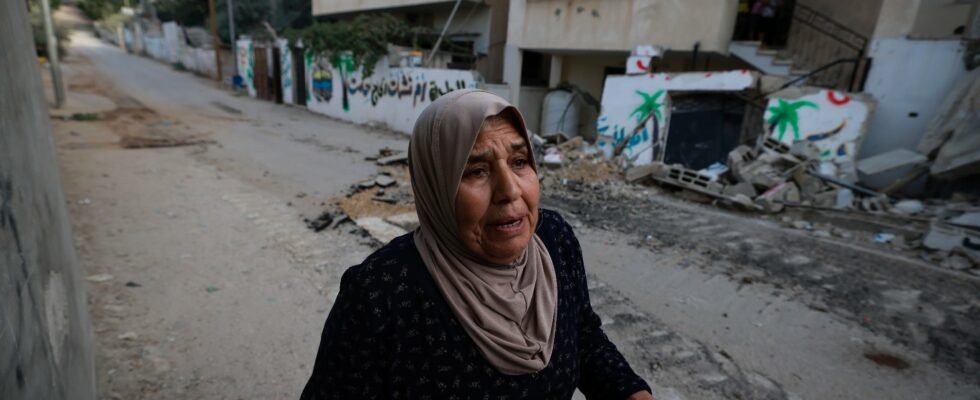At least 16 dead in forty-eight hours. On the second day of the Israeli “anti-terrorist” operation in the West Bank, UN Secretary-General Antonio Guterres expressed his “deep concern” on Thursday, August 29. He called for an “immediate” end to this intervention, “firmly condemning the loss of human life, particularly of minors.”
The UN humanitarian office, OCHA, has warned of the continuation of “military operations near hospitals” and the “serious damage” inflicted on infrastructure, cutting off electricity and telecommunications in places.
The Israeli army sent its columns of armored vehicles on Wednesday, August 28, to Jenin, Tulkarem, Tubas and their refugee camps, in the north of the occupied West Bank, where armed groups are particularly active. After having reported nine fighters killed, it claimed on Thursday to have killed seven others: two in Jenin and five entrenched “in a mosque” in the Nour Chams camp in Tulkarem, among them a commander of the Islamic Jihad, a group allied to Hamas who confirmed his death.
But according to the governor of Tulkarem, Mostafa Taqatqa, the five were killed “in a rocket attack on a house”, without fighting. The Palestinian Ministry of Health also recorded 16 deaths, among which, according to the Palestinian Red Crescent, two teenagers aged 13 and 17, described as “terrorists” by the Israeli army.
West Bank violence erupts
Clashes continued Thursday afternoon in Jenin and Israeli soldiers continued to operate in Tulkarem, according to two AFP journalists. The army, however, withdrew from the Toubas refugee camp, witnesses said.
Israel “wants to put pressure on the resistance” but each “Zionist escalation” strengthens it, Mohamed Mansour, a political leader, told AFPTV in Toubas. According to the Palestinian Prisoners Club, at least 45 people have been arrested since Wednesday, with the army recording ten arrests.
Israeli incursions into Palestinian autonomous areas are a daily occurrence in the West Bank, a Palestinian territory occupied by Israel since 1967. But they are rarely on this scale.
Since the start of the war in Gaza, triggered by the unprecedented attack by Hamas in Israel on October 7, violence in the West Bank has flared up. The UN on Wednesday put the number of Palestinians killed by the Israeli army or settlers at at least 637 since October 7. At least 19 Israelis, including soldiers, died in Palestinian attacks or army operations, according to official Israeli data.
“What happened to our basic humanity?”
In the Gaza Strip, still pounded by Israel and engaged in fighting, the Civil Defense announced on Thursday eight deaths in an Israeli strike on Gaza City (north). Three Palestinians died in a drone strike in Rafah (south), according to a medical source to AFP.
The Israeli army said it had killed “dozens” of fighters in the past 24 hours, including one who took part in the October 7 attack, according to it. Israeli troops are continuing their operations in Rafah, in the Khan Younis region (south) and on the outskirts of Deir al Balah (center), according to the army.
“What has happened to our basic humanity?” Joyce Msuya, acting head of the UN humanitarian office, told the Security Council on Thursday, saying the suffering of the residents was “beyond what any human being should bear.” Most of the Palestinian territory’s 2.4 million people have been displaced in nearly 11 months of war.
The only glimmer of hope: a World Health Organization (WHO) official announced Thursday that Israeli authorities had agreed to a series of three-day “humanitarian pauses” – several hours a day – across Gaza to begin vaccinating children against polio on Sunday, after the first confirmed case was announced. Prime Minister Benjamin Netanyahu had previously said that this was not a “ceasefire to vaccinate against polio but the provision of certain locations.”
